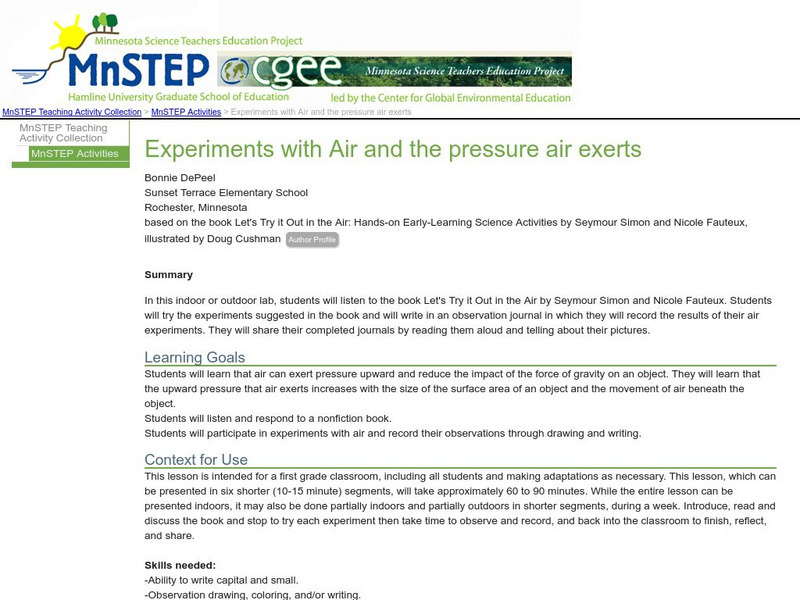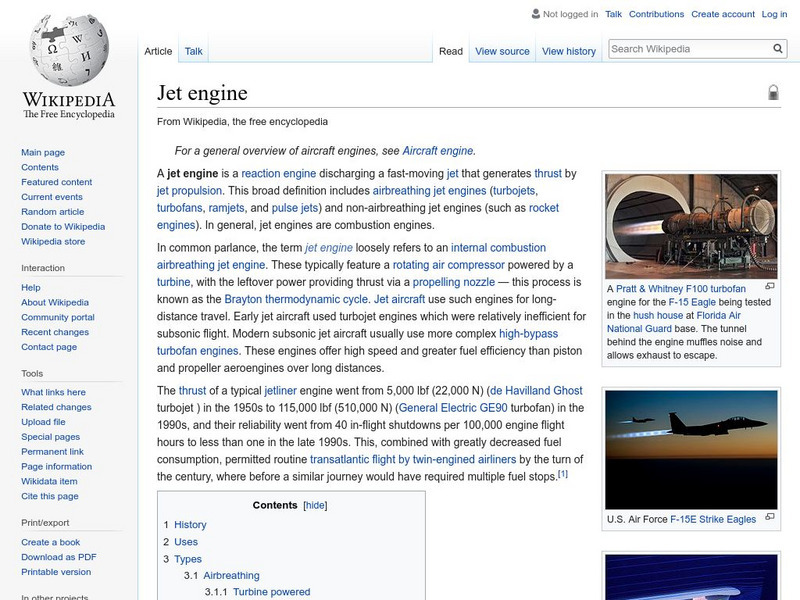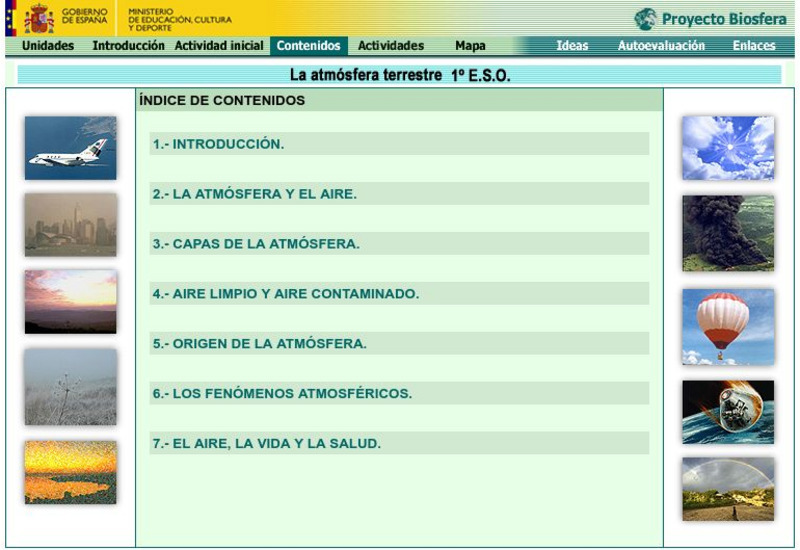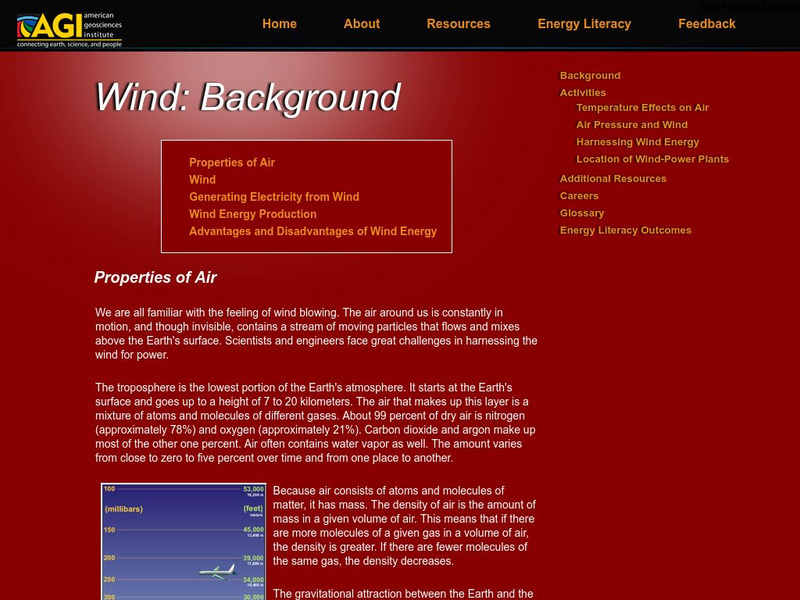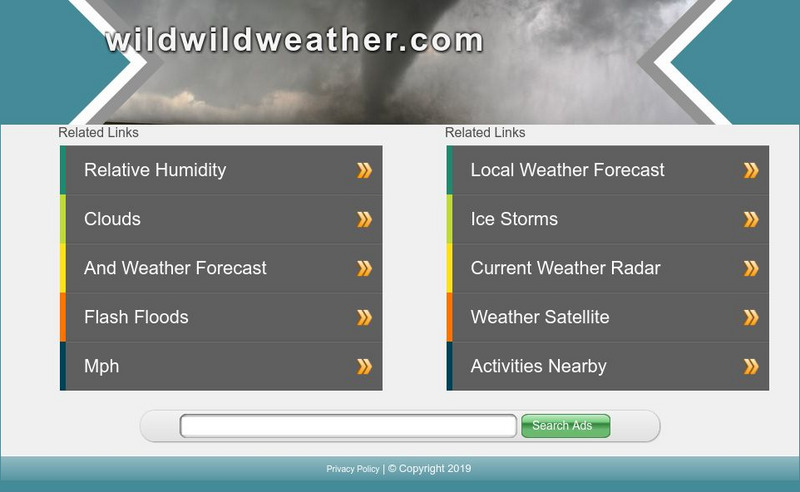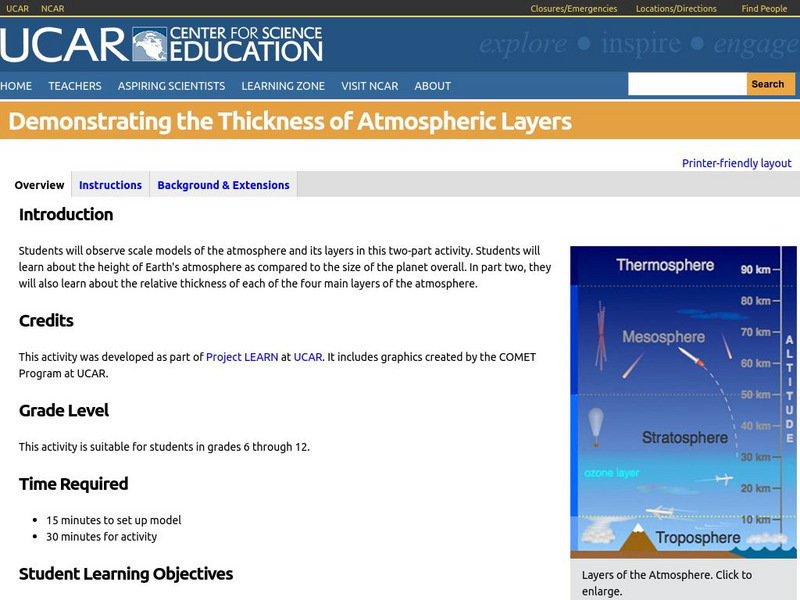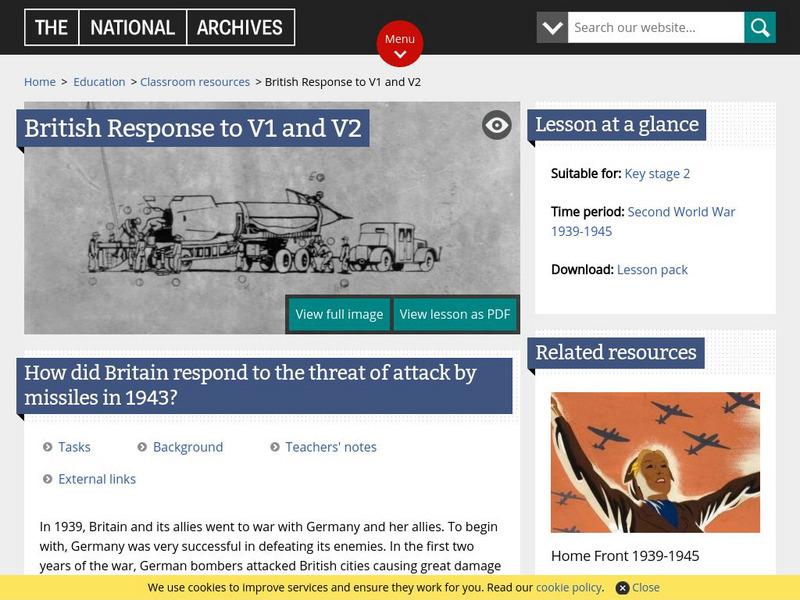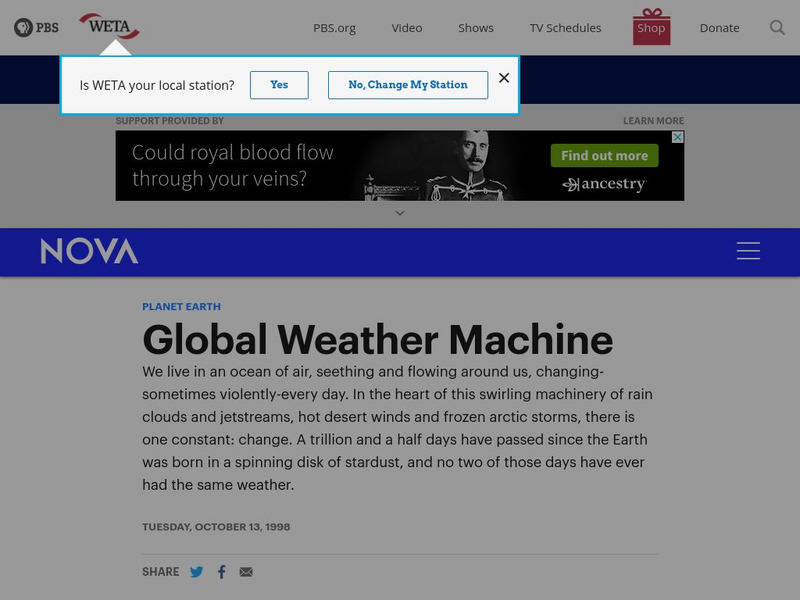Next.cc
Next: Air
Multiple activities explore and explain why plants and animals need air to survive.
Science Education Resource Center at Carleton College
Serc: High and Low Pressure
Students will experience a hands on reference for high and low pressure as it relates to air movement. This activity will help with understanding high and low pressure behavior.
Science Education Resource Center at Carleton College
Serc: Experiments With Air and the Pressure Air Exerts
In this indoor or outdoor lab, students listen to the book Let's Try it Out in the Air. Then they have an opportunity to try the air experiments suggested in the book and write in an observation journal.
Science Education Resource Center at Carleton College
Serc: Air Is Matter
It's difficult at times for younger learners to realize that air has mass. Matter is something that has volume (takes up space) and has mass (*can be weighed). Air does take up space, even if we can't see it, and air has weight, even if...
Wikimedia
Wikipedia: Jet Engine
This site from Wikipedia offers a good definition of "jet engine", then discusses the history of along with various types of jet engines. Links are provided throughout this article for additional information.
National Institute of Educational Technologies and Teacher Training (Spain)
Ministerio De Educacion: La Atmosfera Terreste
In this site learn about the atmosphere and the air, origin and layers of the atmosphere, atmospheric phenomena, clean and pullulated air and the importance of air and health. It contains many illustrations and 15 interactive activities.
PBS
Pbs Kids: Dragonfly Tv: Do It: Amazing Air!
PBS site sets up an investigation that you can do at home to see the effects of invisible air.
American Geosciences Institute
American Geosciences Institute: Wind: Background
A reference page on wind. Learn about the properties of air that allow wind to form as well as how wind is used to make energy. The page also describes the advantages and disadvantages to wind energy.
Dan Satterfield
Dan's Wild Weather: Humidity
Explains how dew point is used to show the amount of moisture in the air. Gives an activity for measuring the dew point at home.
Other
The Spitfire Emporium: The Machines
A collection of images of vintage aircraft. A few detailed histories are provided.
Other
Le Moyne College: Joseph Priestley
This site is provided for by the LeMoyne College. Read 18th-century chemist Joseph Priestley's notes entitled "Experiments and Observations on Different Kinds of Air."
Other
Educational Objects: Does Air Have Weight?
Explore the properties of air with this virtual experiment. Add air to a balloon to discover the property of weight.
USA Today
Usa Today: Jet Stream Roars Along High Above Earth
A good explanation of the jet stream is offered with links to other related information.
Museum of Science
Museum of Science and Industry: Online Science: Activities: Pop Rockets
An experiment where students launch a simple rocket using a film canister, water, and an antacid tablet.
Other
Cornerstone Networks: Fourth Grade Science Lesson 1
This site, designed as a fourth-grade lesson plan, focuses on the earth's atmosphere with information on prevailing winds.
University Corporation for Atmospheric Research
Ucar: How High Does the Atmosphere Go?
This lesson shows the parts of the atmosphere and their size (thickness) relative to the size of the Earth. It includes background information, lesson outline, links to standards and assessments.
NASA
Nasa: Climate Kids: Planet Health Report: Air
Students see the amount of carbon in Earth's atmophere with this graph explained in basic terms.
National Archives (UK)
National Archives Learning Curve: British Response to V1and V2
A lesson plan (including primary documents) on how you as an advisor to the British War Cabinet would try to counter the threat of the V-1 "Buzz Bombs".
American Chemical Society
Middle School Chemistry: Air, It's Really There
Explore the properties of air, and what happens to air when heated and cooled.
US National Library of Medicine
Medline Plus: Gas Exchange
From MedlinePlus, a video tutorial featuring information on the gas-exchange process with accompanying text.
Read Works
Read Works: Gasping for Air
[Free Registration/Login Required] An informational text about the increased risk of asthma for children living in areas with air pollution. A question sheet is available to help students build skills in reading comprehension.
CK-12 Foundation
Ck 12: Plix Series: Factors on Gas Pressure: Atmospheric Pressure
[Free Registration/Login Required] Observe what happens to the barometer as the weather changes from clear, to mixed, to overcast. Then answer a challenge question about the topic.
CK-12 Foundation
Ck 12: Plix Series: Gas Mixture and Molecular Speeds
[Free Registration/Login Required] Hike to the top of Mt. Everest and observe what happens to the amount of molecules pushing down on the surface of the Earth. After the activity, answer one challenge question about the topic.
PBS
Pbs/global Weather Machine
This site explains wind systems as part of a global weather scheme, with illustrations.




